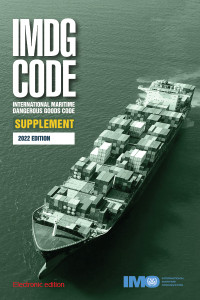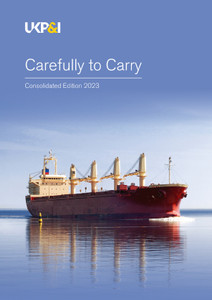
The International Maritime Dangerous Goods Code (IMDG Code) lays out the regulatory framework for all aspects of handling dangerous goods and marine pollutants in sea transport.
The IMDG Code is divided into two volumes: Volume 1 containing sections on general provisions, definitions and training; classification; packing and tank provisions; consignment procedures; construction and testing of packagings, IBCs, large packagings, portable tanks, MEGCs and road tank vehicles and transport operations, and Volume 2 containing the Dangerous Goods List, special provisions and exceptions, Appendix A (list of generic and N.O.S. proper shipping names), Appendix B (glossary of terms) and the Index.
Since it was first published in 1965, the Code has undergone many changes, in both format and content, in order to keep up with the rapid expansion of the shipping industry.
Amendment 41-22 includes revisions to various sections of the Code and to transport requirements for specific substances. It was adopted by the International Maritime Organization's Maritime Safety Committee at its one hundred and fifth session in April 2022 and is mandatory from 1 January 2024 but may be applied by Administrations in whole or in part on a voluntary basis from 1 January 2023.
The provisions of the Code should be of interest to maritime administrations, shipping companies, manufacturers, packers, shippers, feeder services such as road and rail, and port authorities.
As a specialized agency of the United Nations, IMO is the global standard-setting authority for the safety, security and environmental performance of international shipping. Its main role is to create a regulatory framework for the shipping industry that is fair and effective, universally adopted and universally implemented.
In other words, its role is to create a level playing field so that ship operators cannot address their financial issues by simply cutting corners and compromising on safety, security and environmental performance. This approach also encourages innovation and efficiency.
Shipping is a truly international industry, and it can only operate effectively if the regulations and standards are themselves agreed, adopted and implemented on an international basis. IMO is the forum at which this process takes place.
- Number of Pages:
- 0
- Published Date:
- December 2022
- Book Height:
- 303 mm
- Book Width:
- 220 mm
- Author:
IMO
- Weight:
- 1 kg
- Preview:
- Yes
- Publication Date:
- December 2022




